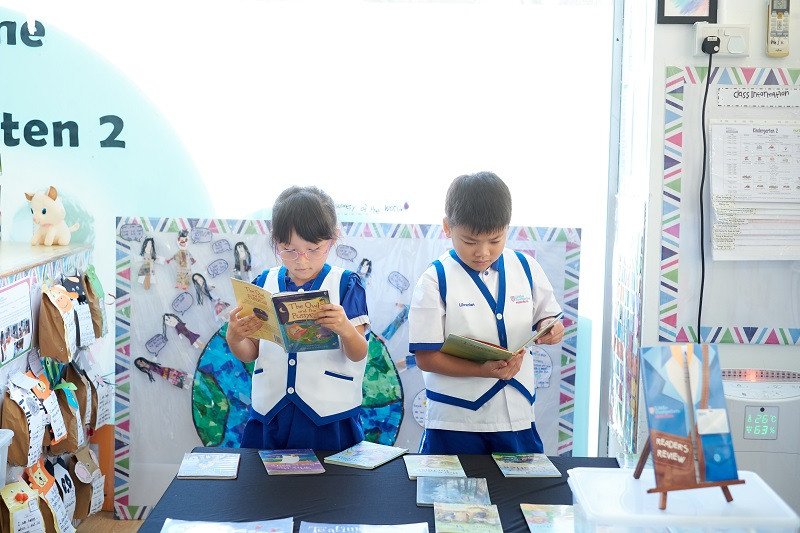
Wondering if it’s too early to start reading with your preschooler? Discover why introducing reading at a young age can make a big difference in your child’s development. When children learn to read at an early age, they have greater general knowledge, a larger vocabulary, better concentration, and an improved attention span. Early readers also tend to be more fluent readers, and higher academic achievers because they struggle less with their studies.
In this article, we will explore the numerous benefits of preschool reading, the ideal age to start, and how preschools in Singapore, such as Little Footprints, can support your child’s literacy journey. The ability to read or literacy skills involve complex developmental accomplishments of your child’s attention, memory, language and motivation competencies. According to the Early Reading Framework (ERF), one of the core areas is the importance of talking in reading.
Reading and storytelling help children learn about sounds, words, and language, fostering enjoyment and comprehension of stories from an early age. By giving your child ample opportunities to listen to stories and discuss them, you set the stage for a lifelong love of reading.
The Importance of Preschool Reading
Early reading offers numerous benefits that extend beyond simply learning to decode words. Research shows that children who engage in reading from a young age develop a stronger foundation for future learning. For example, a study conducted by the Canadian Center for Science and Education found that early readers tend to perform better academically throughout their school years. In Singapore, where academic achievement is highly valued, this early advantage can be particularly beneficial.
Children exposed to reading early often display a larger vocabulary and improved comprehension skills. This is crucial as they enter formal education, where these skills are foundational for learning across all subjects. Additionally, early readers typically exhibit better concentration and a heightened attention span, which translates into improved classroom behavior and academic performance.
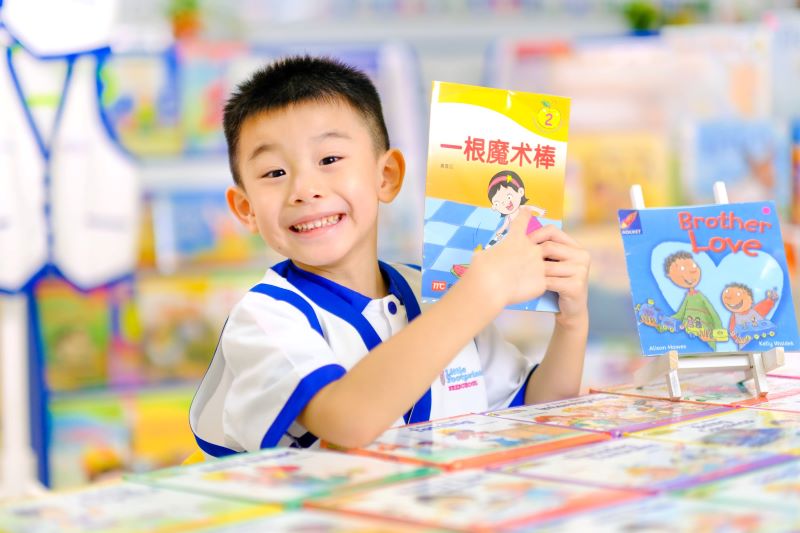
Developmental Skills Enhanced by Reading
Reading supports several key developmental areas:
- Cognitive Development: Engaging with books helps children enhance their cognitive skills. When children listen to stories or read on their own, they develop better memory and problem-solving abilities. For instance, following the plot of a story requires them to remember details and make connections, which strengthens their cognitive processes.
- Language Development: Exposure to a rich variety of words and sentence structures through reading significantly boosts a child’s language skills. This not only expands their vocabulary but also improves their understanding of grammar and syntax. In Singapore, where multilingualism is common, early reading in multiple languages can also support language acquisition and fluency.
- Emotional Understanding: Stories often reflect a range of emotions and social situations. By discussing these with their parents or caregivers, children learn to recognise and articulate their own feelings, as well as develop empathy for others. This emotional insight is crucial for building strong social skills and emotional intelligence.
Incorporating regular reading into your child's routine nurtures these developmental skills, laying a solid foundation for their future educational and personal success.
Best Age to Start Early Reading With Your Preschool Child
Determining the best age to start reading with your child involves considering both expert opinions and developmental milestones. Experts agree that there isn’t a one-size-fits-all age for starting reading. From infancy, your baby can benefit from being read to by parents or caregivers. This early exposure helps them become familiar with the rhythm of language and the joy of stories, setting the foundation for future literacy skills.
“Some children are ready to learn to read at the age of 3, and some take much longer,” says AnnMarie Sossong, a reading specialist at Ocala Preparatory Academy in Florida. Dominic Wyse, a professor of primary education at University College London, in the UK agrees, sharing that "young children learning to read is one of the most important things primary education does. It's fundamental to children making progress in life”.
He adds that the priority should be to encourage an interest in and familiarity with words, using storybooks, songs and poems, all of which help children pick up the sounds of words, as well as expand their vocabulary.
Developmental milestones for early readers typically include:
- Infancy to 18 Months: Babies benefit from being read to and exposed to the sounds and rhythms of language. Picture books with simple images and repetitive text are ideal.
- 18 Months to 3 Years: Toddlers start to understand that print carries meaning. They may begin to recognise familiar words and phrases and enjoy interactive books.
- 3 to 4 Years: Many children begin to recognise letters and sounds. They can follow simple stories and start to engage with rhyming words and basic word recognition.
- 4 to 5 Years: Preschoolers often start to read simple words and sentences. They are able to use their understanding of phonics to decode new words and enjoy more complex stories.
A typical age for beginning or emerging readers is around 4 or 5 years old. During these early years, the average preschooler will learn pre-reading skills such as short words, start rhyming, and reading simple one-syllable words.
Readiness for reading varies by child, so it's essential to tailor your approach to your child's individual needs and interests. Creating a positive and supportive reading environment can greatly enhance your child’s literacy development.
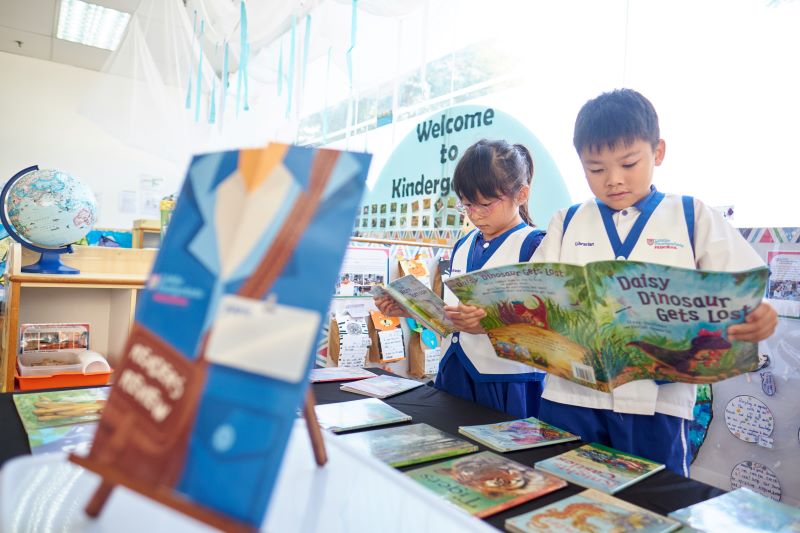
How Preschools in Singapore Foster Early Reading
In Singapore, many preschool programmes integrate early reading into their curriculum to build a solid foundation for literacy.
At Little Footprints Preschool, early reading is a core component of their curriculum, with a focus on creating enthusiastic and skilled readers. The preschool's approach to fostering literacy includes:
Librarian’s Code Programme
This specialised programme is designed to cultivate future readers, writers, and storytellers through engaging and dynamic interactions with quality children's literature. It comprises two key sub-programs:
- Reader to Leader: Tailored to match your child’s current reading level, this sub-programme helps build their confidence and interest in reading. It incorporates a range of activities that support the development of reading skills and encourage a love for books.
- Bond ‘thru’ Reading: This initiative promotes the habit of borrowing books from the school’s library and encourages parents to engage in reading activities with their children at home. It aims to strengthen the home-school connection and foster a reading culture within families.
Unique Aspects of the Program:
- Interactive Learning: The Librarian’s Code incorporates interactive elements such as dramatisations and creative storytelling to make reading sessions more engaging.
- Parental Involvement: The program emphasises the importance of reading together at home, providing parents with tools and resources to support their child’s literacy development.
- Comprehensive Approach: By combining in-school reading activities with at-home reading practices, Little Footprints Preschool ensures a holistic approach to developing early literacy skills.
Overall, the curriculum at Little Footprints Preschool is designed to make reading a fun and integral part of daily life, helping children develop a lifelong love for books and learning.
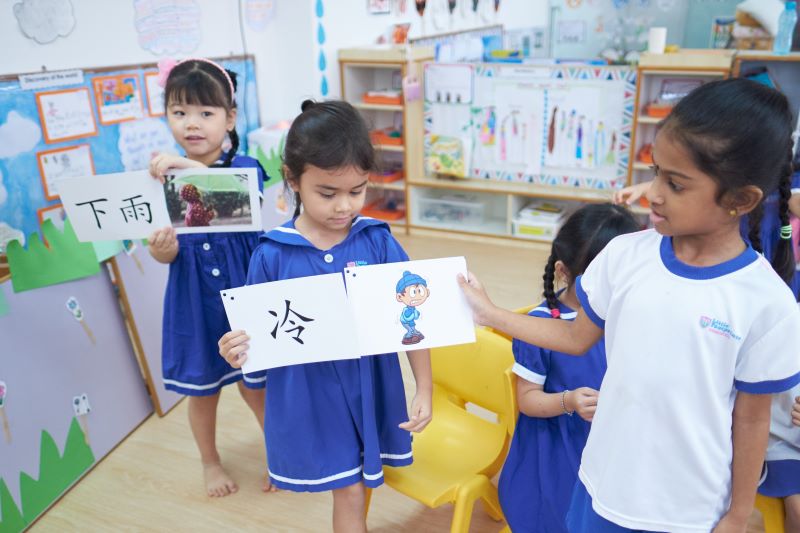
Tips For Parents To Encourage Reading At Home
Supporting your child’s reading development at home can significantly enhance their literacy skills and foster a lifelong love of books. Here are some practical, actionable steps to help you effectively introduce and encourage reading with your preschooler.
1. Sing and Recite Nursery Rhymes
Sing songs and recite nursery rhymes to build phonemic awareness. This fun and playful activity engages your child with the sounds of language and helps develop early reading skills. In Singapore, popular local nursery rhymes such as "Twinkle, Twinkle, Little Star" in both English and Mandarin, and traditional Malay lullabies can be delightful ways to incorporate cultural elements into your reading routine.
2. Use Word Cards
Paste simple word cards at home to build essential phonics skills. Create cards with common words and objects found in a Singaporean household, such as "door," "table," "chair," and "bus." This activity helps your child identify objects, decode sounds, and build their vocabulary.
3. Play Interactive Word Games
Play word games at home or during car rides to encourage listening and sound manipulation. Try local variations of games, such as:
- "I Spy" with Words: For example, "I spy with my little eye something that starts with 'B' (bus)."
- Rhyming Games: Ask questions like, "What word rhymes with 'kite'?" or "What sound does 'fish' start with?"
4. Use Letter Magnets
Play with letter magnets to practice vowel sounds and other letters. Stick them on the fridge or a metal surface in the playroom. Incorporate activities such as forming simple words like "cat" or "dog" and sounding them out together.
5. Prioritise Regular Reading
Set aside dedicated time for reading every day. Establish a reading routine, whether it’s before bedtime or during weekend mornings. Incorporate local stories or books about Singaporean landmarks and festivals to make reading time more relatable.
6. Read Aloud to Your Child
Read aloud to your child to help them recognise sight words and understand how words sound. Choose a variety of books, including those featuring local themes and stories, to broaden their understanding and interest in different subjects.
7. Choose Relevant Stories
Select stories that reflect your child's experiences and surroundings. Books that feature Singaporean characters or settings can help your child connect with the content and gain a deeper understanding of their own culture.
8. Encourage Multiple Readings
Read favourite stories multiple times to build familiarity and love for the content. Repeated readings help children recognise words and improve their reading fluency. Consider rotating books that highlight various aspects of Singaporean life to keep their interest piqued.
9. Have Them "Read" to You
Encourage your child to "read" to you by having them tell a story based on the pictures or familiar tales. This activity helps build confidence and reinforces their understanding of story structure and content.
Book a tour with Us!
Find out more about our “Librarian’s Code” – Reader to Leader and Bond Thru Reading programmes and how they will help advance your child’s early years of reading by visiting us at your preferred Little Footprints Preschool centre.
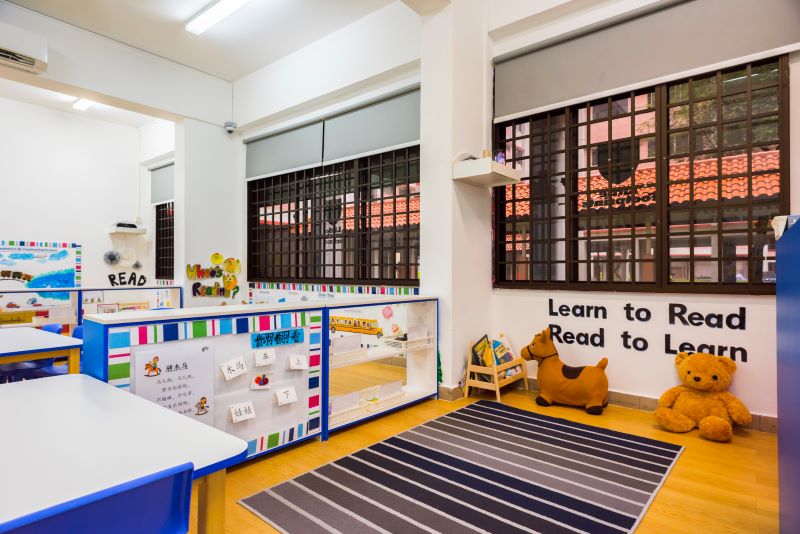
We have centres island-wide. Book a tour today at the centre most convenient for you and let us be a part of your child’s early childhood education journey.
Follow us on social media to stay updated on our latest updates and happenings:




